Rex Burkhead has been all over the field during an impressive spring.
There is a sense in these parts that if Rex Burkhead were in a lot of other NFL backfields, he'd at least be in the rotation, if not, starting for some clubs. And if James Wilder Jr., had been playing for the Colts last year when they were down a bunch of running backs, he would have started the Wild Card Game against the Bengals instead of serving out his year-long stint on the Cincinnati practice squad.
"We're just trying to find all the versatility that our players can do," says offensive coordinator Hue Jackson. "We have a lot of good players. We have to do what we can to find ways to have people contribute and have chances to make this team."
Which is why Burkhead is spending time with the wide receivers and working a good deal of this spring's practices in the slot during 11-on-11. And why Wilder is the only Bengals back working as both a running back and fullback.
"We're deep and young at the same time. So anywhere I can show my versatility," Wilder says. "Special teams. Fullback. Running back. Anything to better my chances at getting on the 46 Man (active list for games). I was practice squad last year. That was no fun."
If this is Bengals head coach Marvin Lewis' deepest team (and hasn't that been the annual question since 2013?), then running back is maybe the best example.
There is a clear one-two punch with 22-year-old Jeremy Hill and 23-year-old Giovani Bernard, both second-round picks and NFL Rookie of the Year finalists.
There is Burkhead, a productive pass-catching type and solid runner who has played in just 11 NFL games heading into his third season but has 10 catches and had the Bengals' longest catch in the Wild Card Game on a 26-yard play in his first game as a wide receiver. He's going to make it and he'll at least play special teams on Sunday. But how do you get him more scrimmage snaps?
There is heady special teams co-captain Cedric Peerman, who has averaged 5.2 yards per 48 Bengals carries and last season, according to profootballfocus.com, led the NFL with 16 special teams tackles.
And there is the 6-3, 236-pound Wilder, a Florida State product put together so well that he's routinely referred to as "a physical freak." Before he came out of school undrafted, Wilder averaged six yards per his 226 career carries over three seasons in Tallahassee and has impeccable bloodlines stretching to Tampa Bay's all-time leading rusher.
Before the 23-year-old Wilder was born, the carbon-copy 6-3 James Wilder Sr., bruised and pounded the last nine years of the 1980s with 5,957 yards for the Buccaneers before finishing in 1990 as Hall-of-Famer Barry Sanders' fullback in Detroit.
The son knows he's got it tough behind Hill and Bernard, but…
"Spending the back-end years competing with Sanders," the young Wilder muses, "that would have been pretty hard."
It's not that hard here, but roster spots are few and far between. Especially since the starting fullback, Ryan Hewitt, also undrafted and in his second year, is coming off an all-rookie season. Throw in that the Bengals figure to keep three tight ends and may very well keep three quarterbacks and, well, Wilder is prepared to grind it out.
"He's embraced it, he's learned it," says running backs coach Kyle Caskey. "He just has to get used to the different speed because the fullback is obviously lined up closer to the line of scrimmage. He takes the game seriously. We've put a lot on his plate and he's handled it really well."
The Bengals approached Wilder with the switch in mid-April when they returned for voluntary workouts as a way he may be able to get on the field and they suggested he put on some weight. With the help of five meals a day, along with some protein shakes and peanut butter and jelly sandwiches, he's put on 10 pounds in six weeks to get to 236 and he hopes to hit 240 because he still feels quick.
"That's been the hardest part,' Wilder says of the switch. "Putting on weight.
"At running back you already know kind of what the fullback is doing. There are just some things I don't know, but it opened my eyes…I understand exactly what the fullback is doing from the tailback standpoint and what his perspective is as blockers. It makes it easier as a tailback."
Wilder talks to his father every day and he's advising his son to keep his feet in both camps and not to become exclusively a fullback.
"He told me get my weight so that it's good weight. You don't want sloppy weight," Wilder says. "Sloppy weight is just eating and killing protein without working out. That will slow you down. Put a lot of stress on your back. That's when you lose quickness and speed…He was telling me to stay sharp with the running back plays so I can go right back in there at any time."
Cincinnati Bengals host OTA's at Paul Brown stadium practice fields 06/03/2015
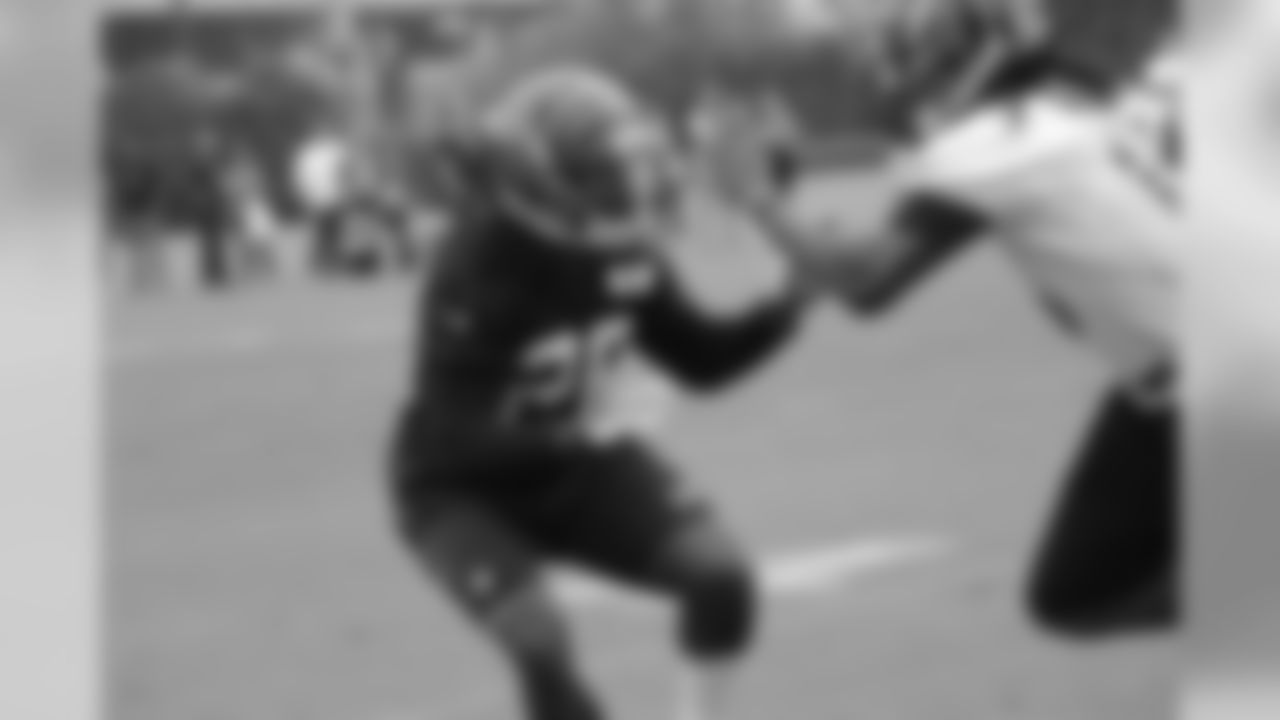
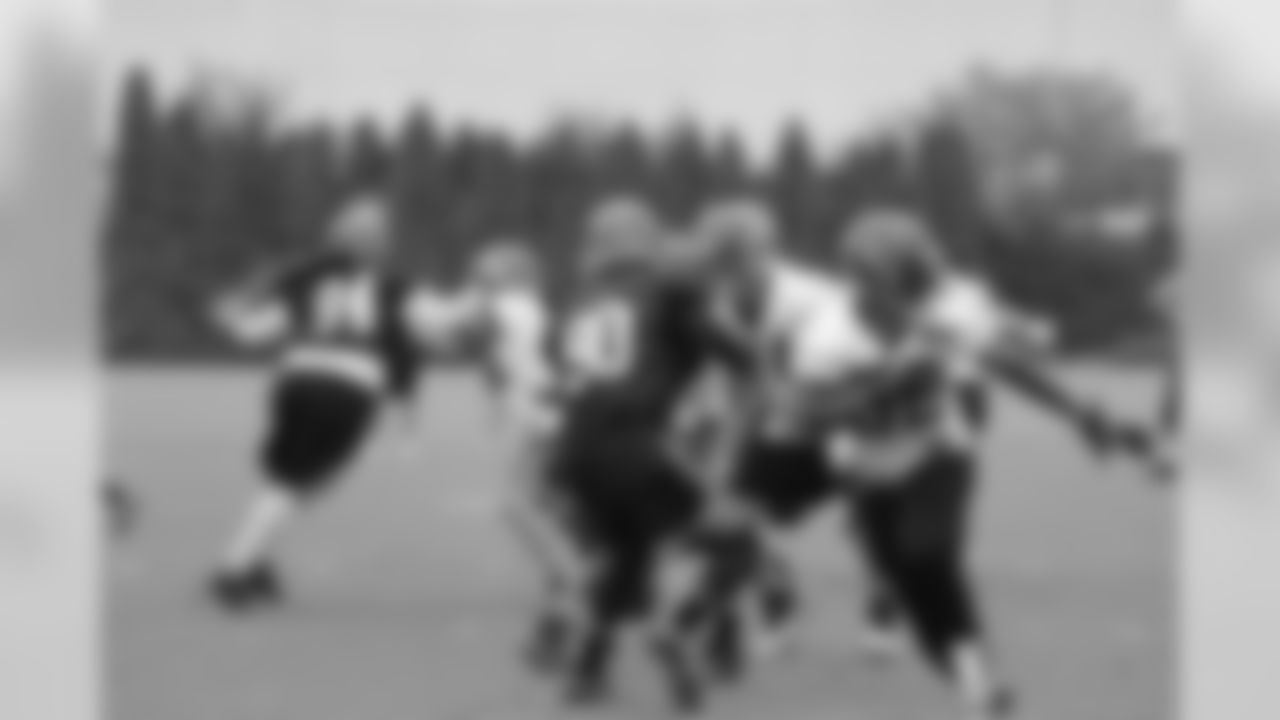
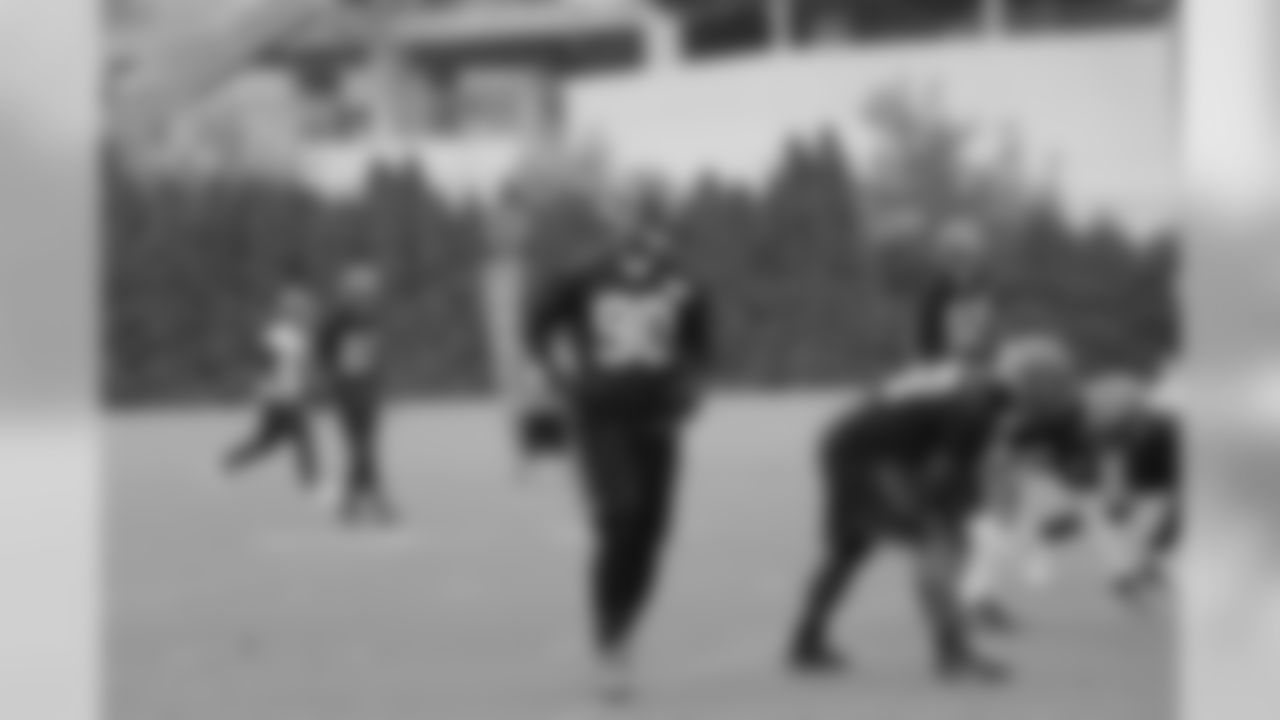

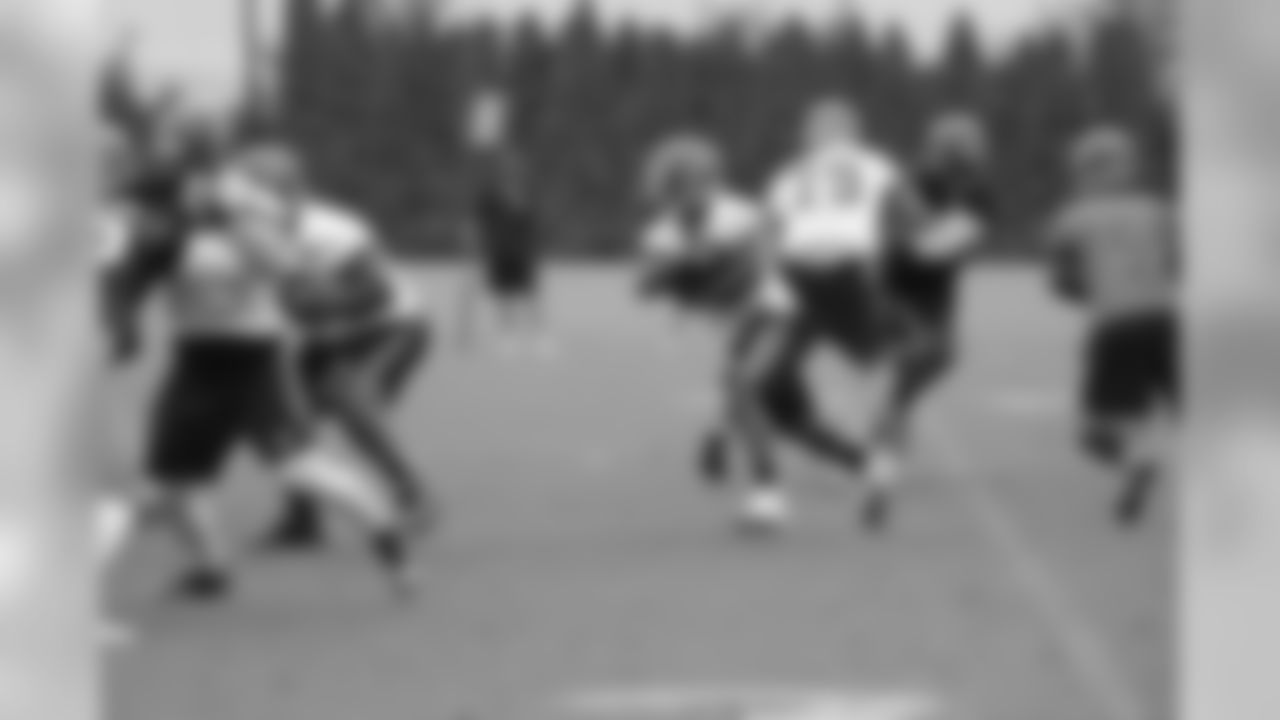
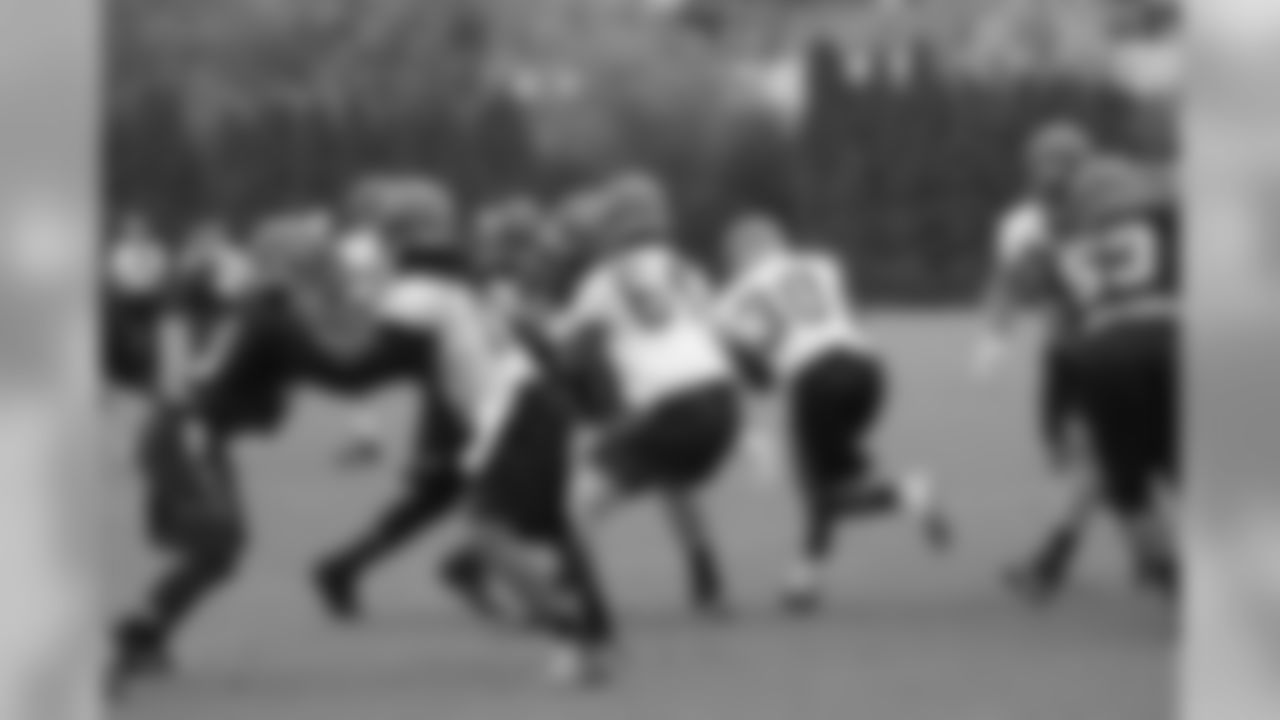


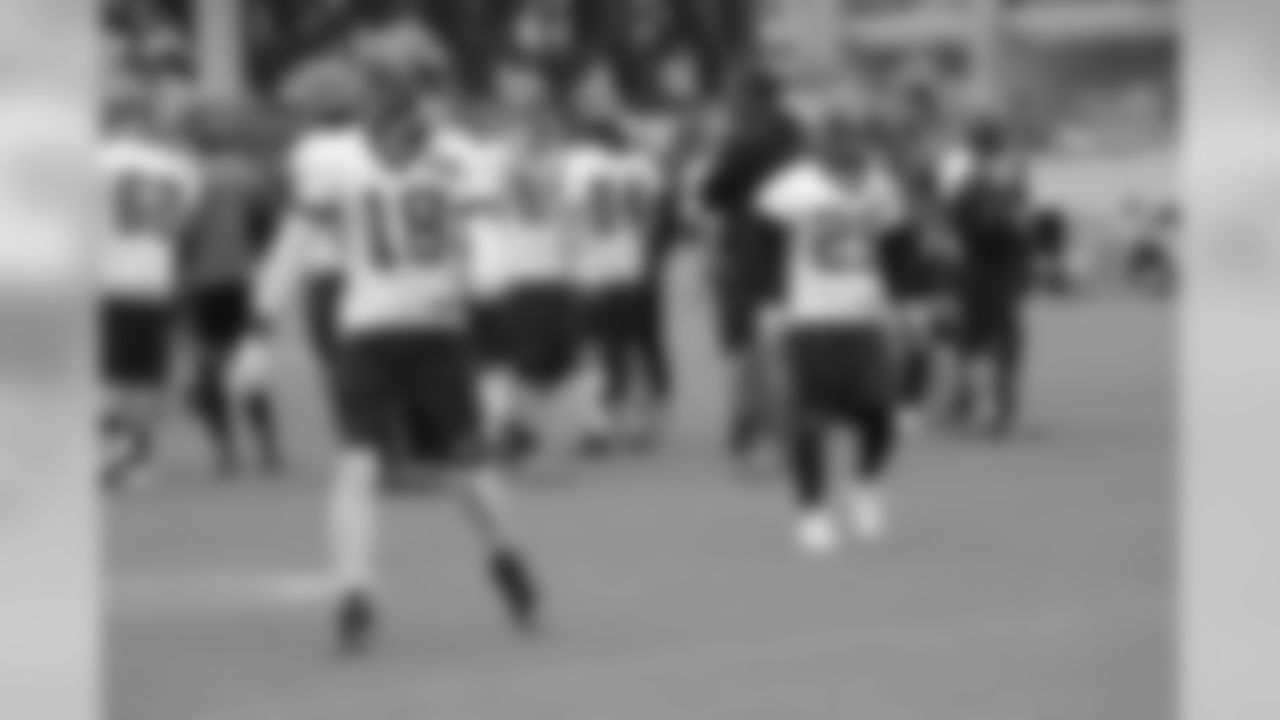



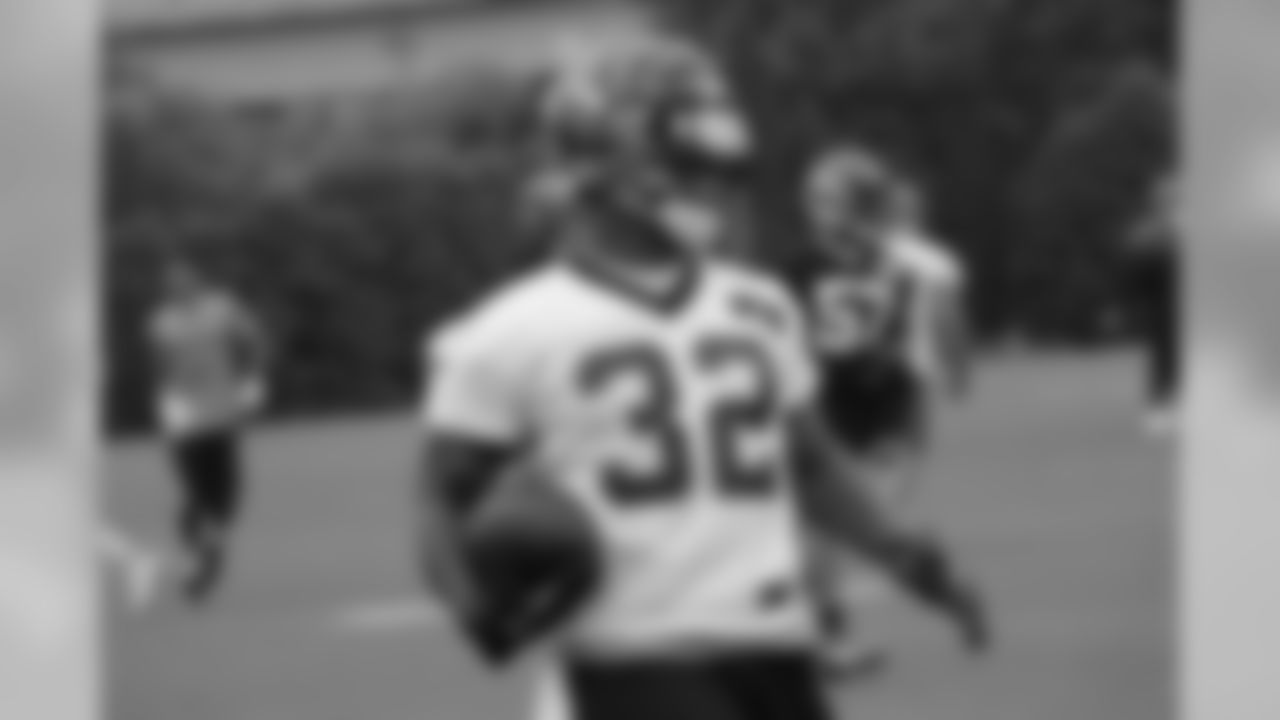

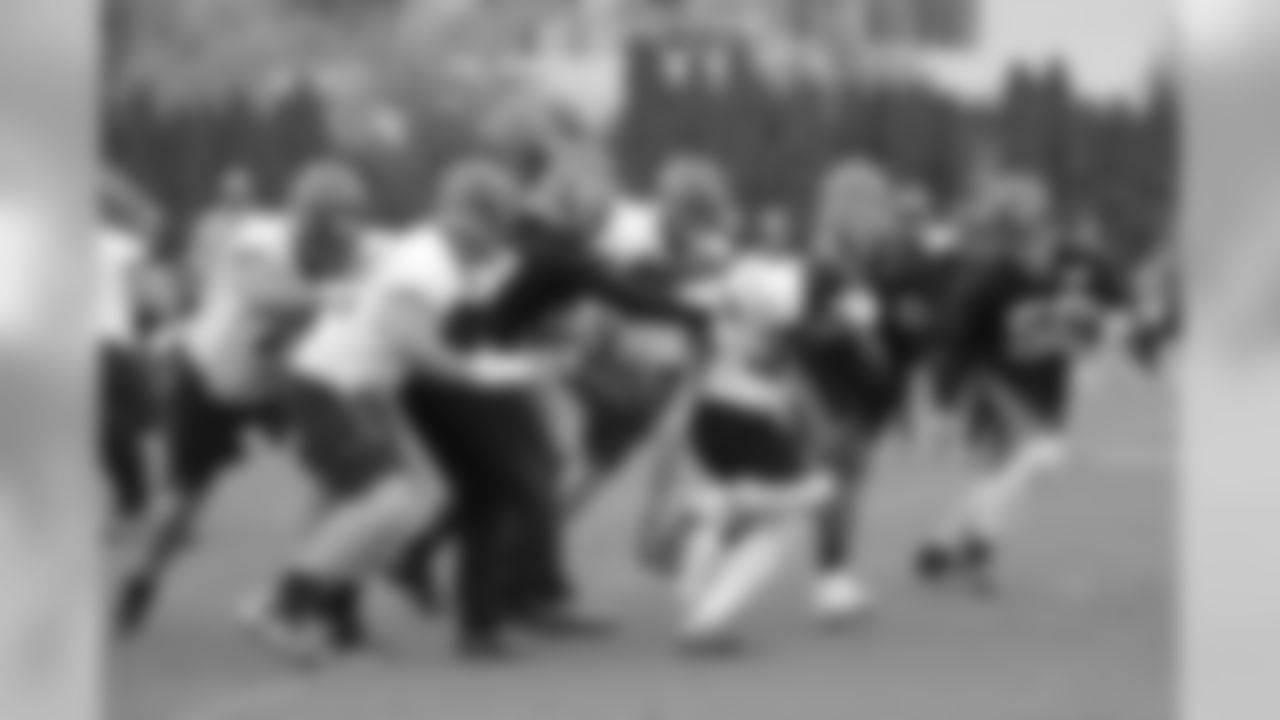







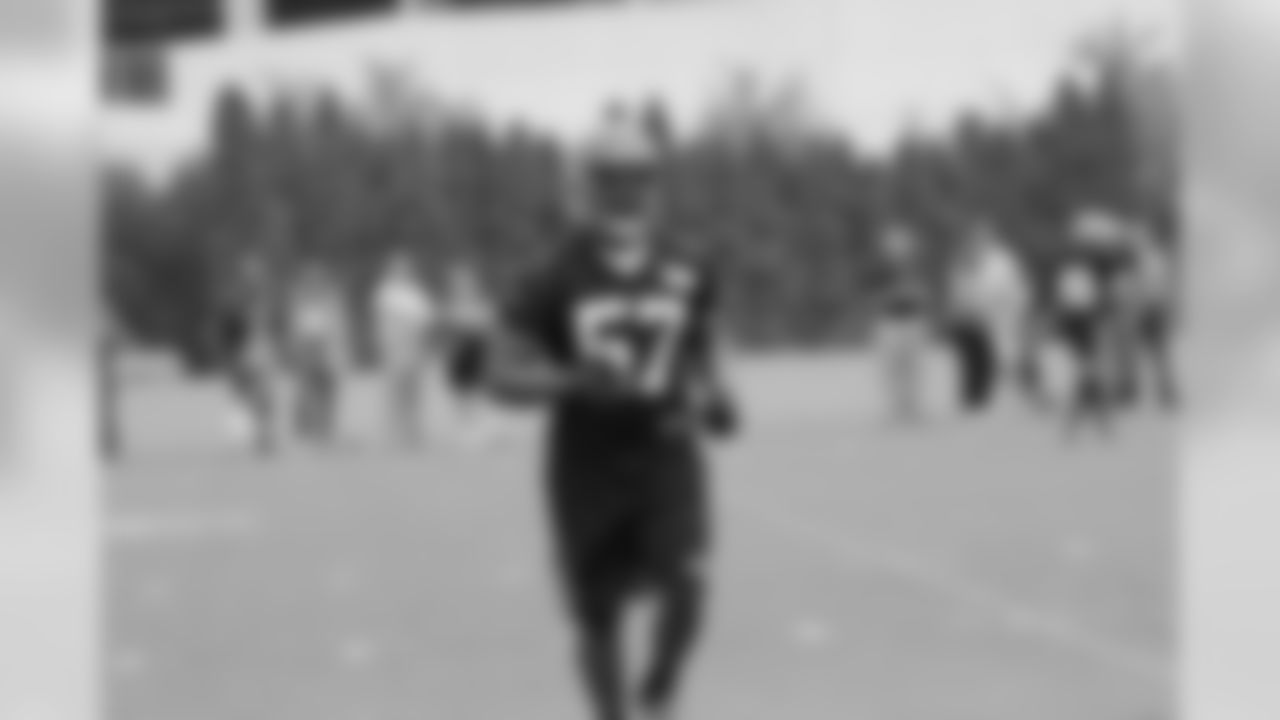
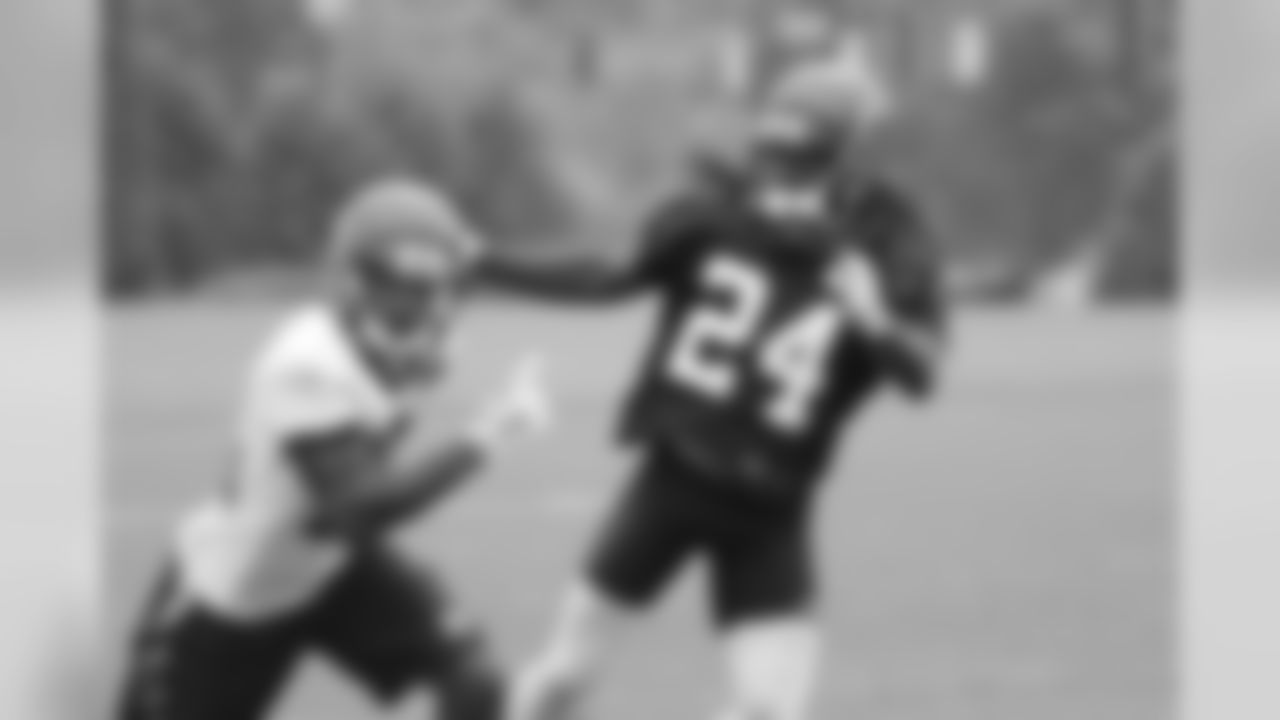
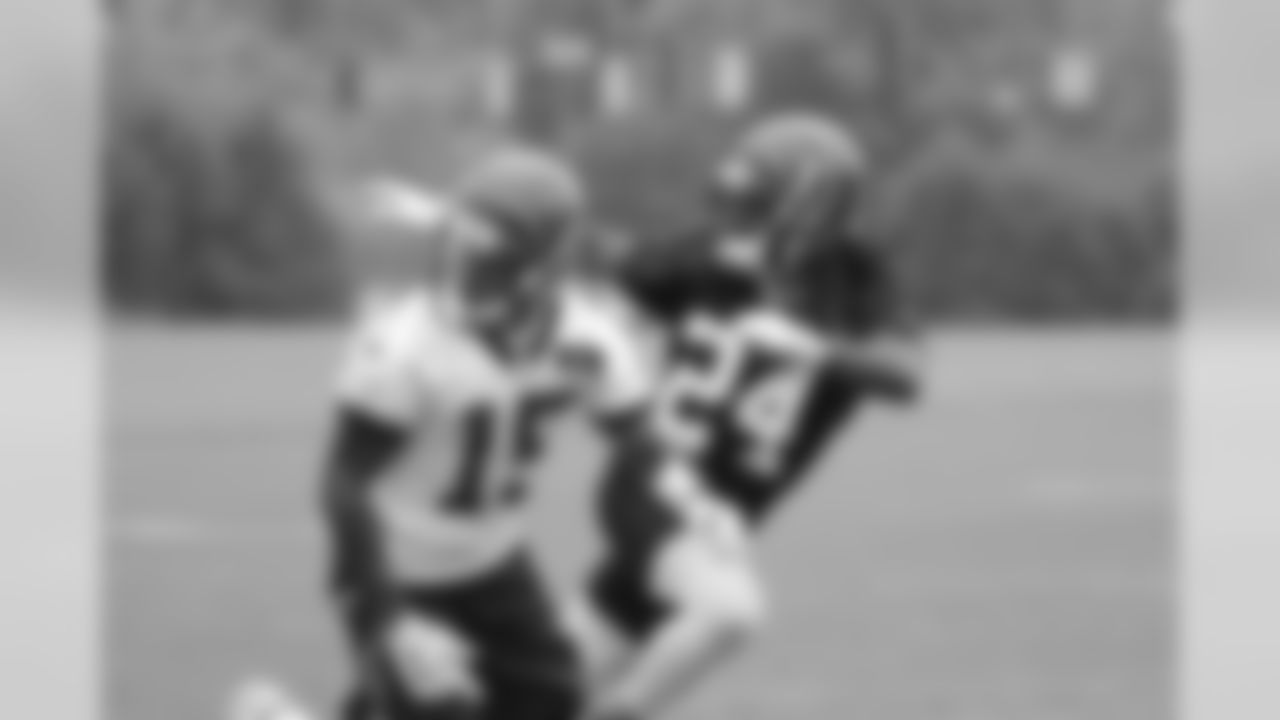
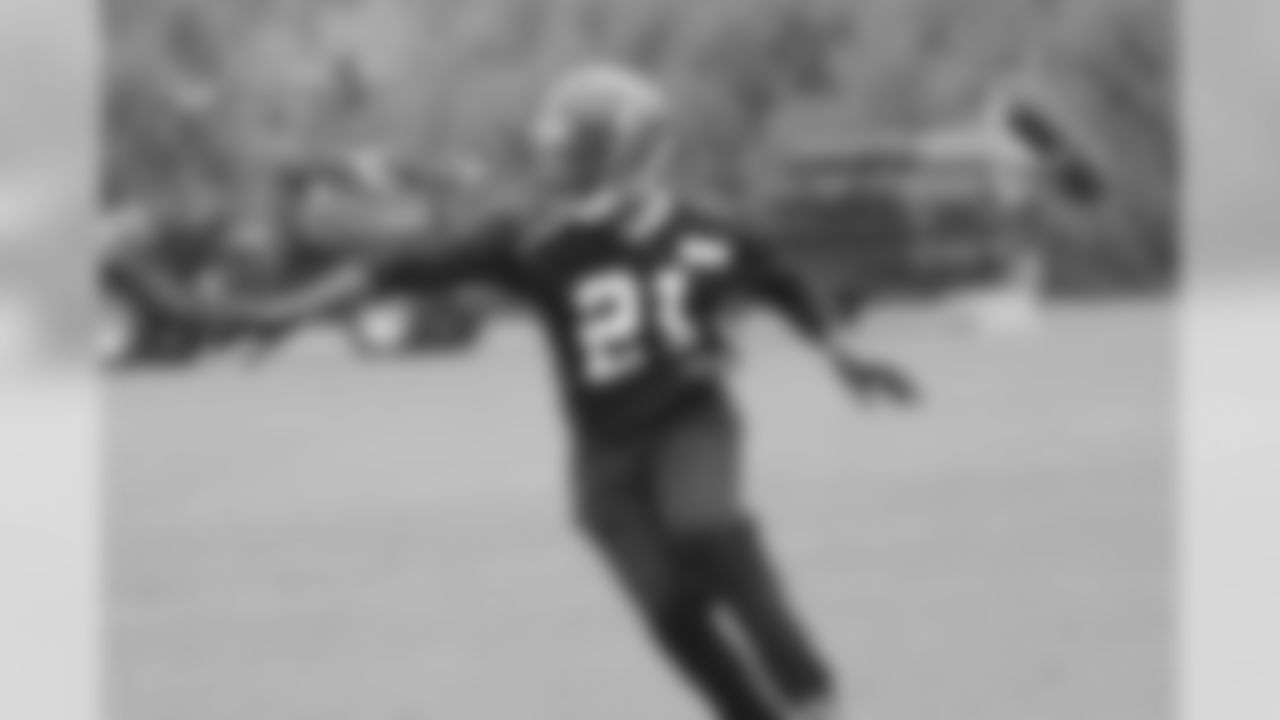

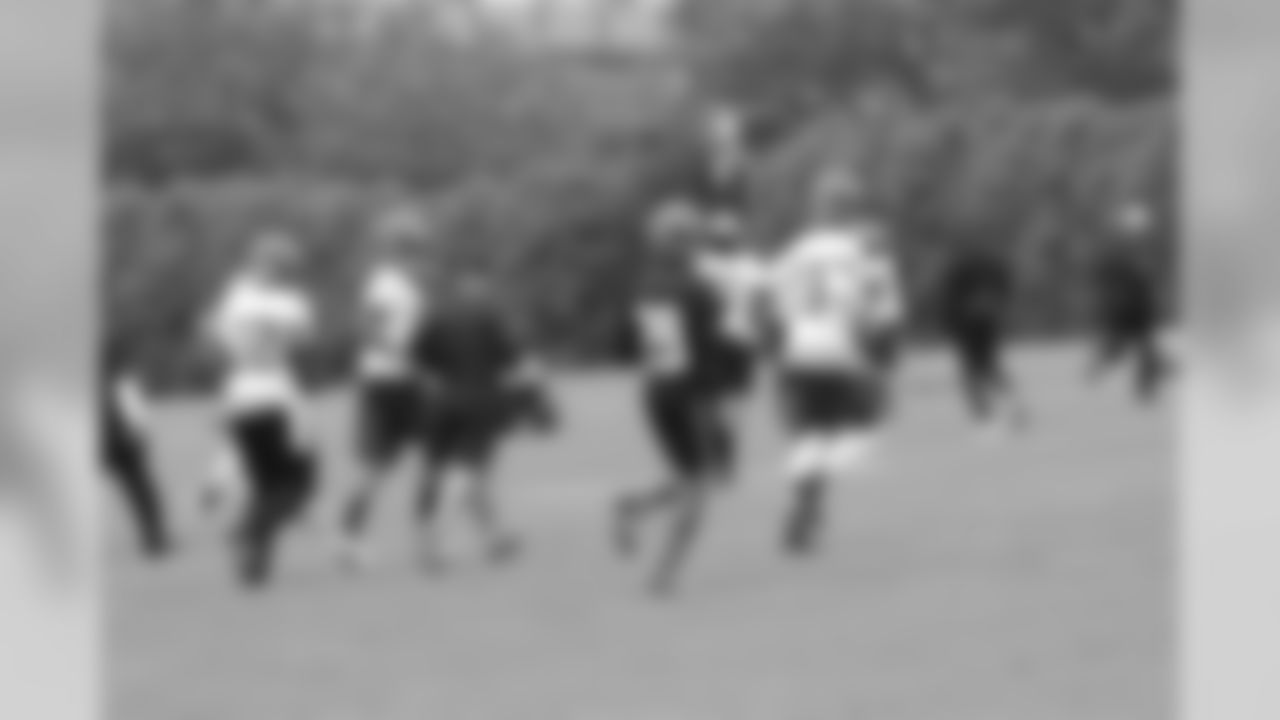
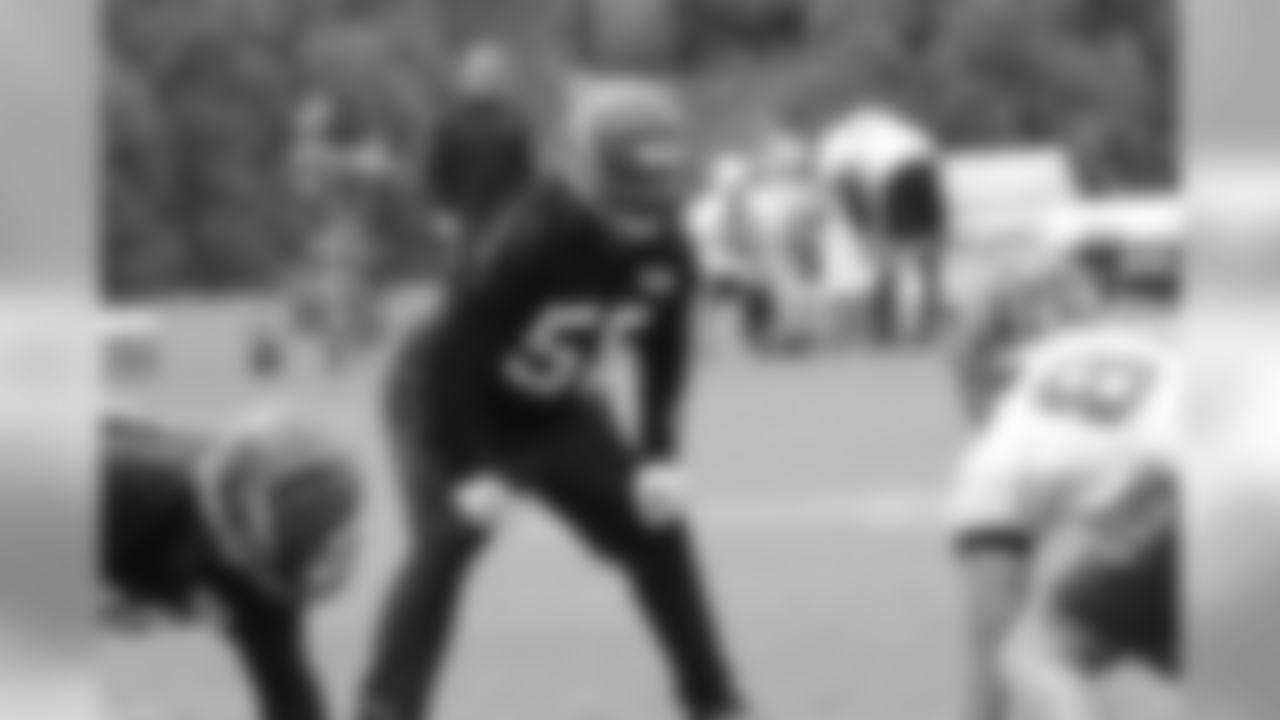

Wilder's chip-off-the-block running style fits nicely because his power game suits the lot of a fullback and he could certainly be some NFL teams' situational big back. He last played fullback in high school, but he also carried the ball. In the NFL, he'll be pretty much only blocking (as well as making an occasional catch and Caskey says he has good enough hands) and Wilder thinks he can pull it off.
"He doesn't look out place…He's a tough guy. He's one of these guys willing to do anything for the offense to be better and he's willing to try something different," Jackson says. "But you can't access that position until the pads come on. He's got to do it in pads….It's (a position) where there has to be want-to and he wants to. We'll give him a chance."
Burkhead's case isn't as clear cut. He still meets with the running backs. He still does his individual drills with the running backs. But, as he showed in the biggest game of the year last year with the receiver corps depleted, Jackson had enough confidence to line him up at receiver.
"It's unfortunate that people have to label people," Jackson says. "He's a running back that can do lot of good things. He's very valuable to the team and the organization…There are all kinds of ways (to get Burkhead on the field)."
The coaches and Burkhead say the biggest adjustment is running routes out of the slot where linebackers and defensive backs immediately make contact with their hands. When running a route out of the backfield, the receiver is running much of the way unencumbered. But with Burkhead a solid 5-10, 215 pounds, Jackson says he's got a big enough body to survive the onslaught.
Growing up in the Republic of Texas, where the state sport is seven-on-seven, Burkhead is a natural catch.
"That's always something I've done. It's more natural than running routes or reading defenses," Burkhead says. "I'm still trying to get down the different routes I haven't run before."
The idea is running it or catching it or blocking, the more the merrier in order to get on the roster or get on the field or both.
"Any time you can find a way to get the ball in your hands, you're more than happy to do that," Burkhead says. "Hopefully the coaches have the confidence to get the ball in my hands."















